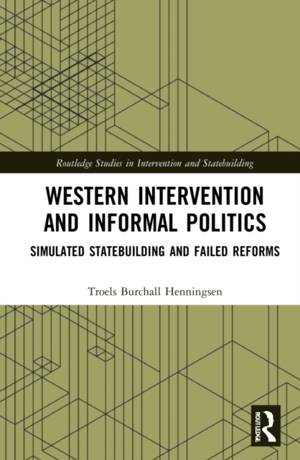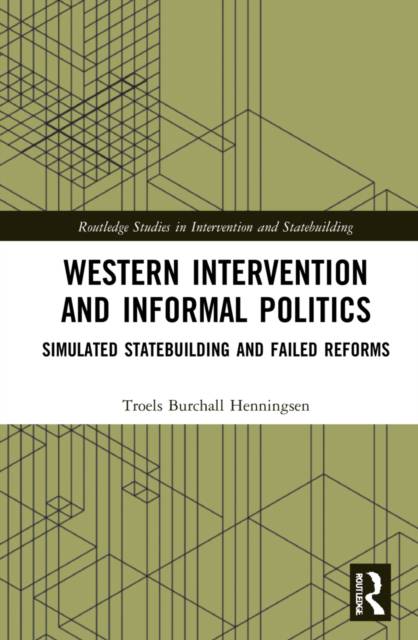
- Afhalen na 1 uur in een winkel met voorraad
- Gratis thuislevering in België vanaf € 30
- Ruim aanbod met 7 miljoen producten
- Afhalen na 1 uur in een winkel met voorraad
- Gratis thuislevering in België vanaf € 30
- Ruim aanbod met 7 miljoen producten
Western Intervention and Informal Politics
Simulated Statebuilding and Failed Reforms
Troels Burchall HenningsenOmschrijving
This book examines the political and military dynamic between threatened local regimes and Western powers, and it argues that the power of informal politics forces local regimes to simulate statebuilding.
Reforms enabling local states to take care of their own terrorist and insurgency threats are a blueprint for most Western interventions to provide a way out of protracted internal conflicts. Yet, local regimes most often fail to implement reforms that would have strengthened their hand. This book examines why local regimes derail the reforms demanded by Western powers when they rely on their support to stay in power during existentially threatening violent crises. Based on the political settlement framework, the author analyses how web-like networks of militarized elites require local regimes to use informal politics to stay in power. Four case studies of Western intervention are presented: Iraq (2011-2018), Mali (2011-2020), Chad (2005-2010), and Algeria (1991-2000). These studies demonstrate that informal politics narrows strategic possibilities and forces regimes to rely on coup-proofing military strategies, to continue their alliances with militias and former insurgents, and to simulate statebuilding reforms to solve the dilemma of satisfying militarized elites and Western powers at the same time.
This book will be of much interest to students of statebuilding, international intervention, counter-insurgency, civil wars, and international relations.
Specificaties
Betrokkenen
- Auteur(s):
- Uitgeverij:
Inhoud
- Aantal bladzijden:
- 200
- Taal:
- Engels
- Reeks:
Eigenschappen
- Productcode (EAN):
- 9781032070070
- Verschijningsdatum:
- 29/12/2021
- Uitvoering:
- Hardcover
- Formaat:
- Genaaid
- Afmetingen:
- 156 mm x 234 mm
- Gewicht:
- 476 g

Alleen bij Standaard Boekhandel
Beoordelingen
We publiceren alleen reviews die voldoen aan de voorwaarden voor reviews. Bekijk onze voorwaarden voor reviews.











